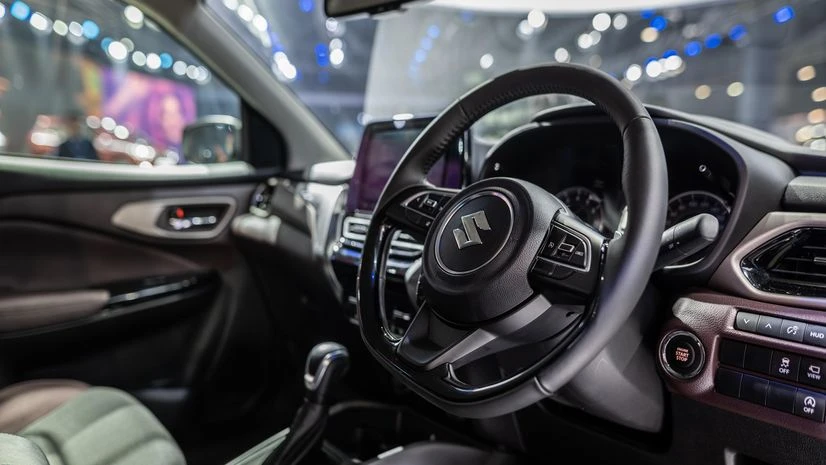Beating Street estimates, Maruti Suzuki India Limited (MSIL), India’s largest car manufacturer, reported a 48 per cent year-on-year (Y-o-Y) increase in its consolidated net profit for the first quarter of 2024-25 — primarily on the back of strategic cost reductions, favourable commodity prices, and advantageous foreign exchange conditions.
The automaker’s earnings soared to Rs 3,759.7 crore, up from Rs 2,542.9 crore in the April-June quarter of the previous year. That surpassed Bloomberg’s consensus forecast of Rs 3,272 crore.
However, the quarter-on-quarter performance was subdued as net profit was down 5 per cent, largely due to the dual impact of the intense summer heatwave and the recent Lok Sabha elections, which appeared to have kept potential car buyers at bay.
Following the strong Y-o-Y showing, Maruti Suzuki has announced plans to launch six new electric vehicle models by 2031 and reported that its compressed natural gas (CNG) vehicles are gaining popularity, now accounting for one in every three cars sold.


Remarkably, in the Indian automotive sector, CNG car sales surpassed diesel sales for the first time, in the June quarter, marking a significant shift in consumer preferences.
More From This Section
By the end of this decade, MSIL aims to have 28 models, up from around 18 models now.
During the June 2024 quarter, MSIL’s total income rose to Rs 36,839.9 crore, marking a 10 per cent increase compared to Rs 33,582.3 crore in the same quarter last year. Sequentially, the figure was down 7 per cent.
The company’s expenses climbed on a Y-o-Y basis, reaching Rs 32,061.8 crore, from Rs 30,375.5 crore.
“The rise in net profit was due to cost reduction, favourable commodity prices, and foreign exchange,” said Rahul Bharti, executive director of corporate affairs at MSIL. “In the domestic market, the demand for passenger vehicles was muted to some extent, largely due to the heatwave and elections, which kept potential customers away from our showrooms. We increased our discounts to make them more attractive. As a result, we could achieve retail sales nearly at par with the previous quarter.”
Bharti further said: “We believe that customers may be waiting for an auspicious period. Going forward, a better monsoon season, coupled with festive retail sales, is what the industry is pinning its hope on.”
During the Q1 quarter, Maruti Suzuki sold 521,868 vehicles, reflecting a 4.8 per cent increase Y-o-Y. Domestic sales accounted for 451,308 units, up 3.8 per cent from the year-ago period, while exports reached 70,560 units, an increase of 11.6 per cent.
MSIL claimed a 40 per cent share of total market exports during the quarter and set a target of exporting 300,000 units in the current financial year. The export growth has been driven largely by robust demand in West Asia and Latin America.
“We are well diversified across about 100 countries. All three zones, Africa, Latin America, and West Asia, are doing well. The Jimny has become the largest exported model during the first quarter, followed by Dzire, Baleno, and Grand Vitara,” Bharti noted.
During the quarter, the company recorded net sales of Rs 33,875.3 crore, up from Rs 30,845.2 crore in the first quarter of FY24.
Despite the fact that 4.2 million cars were sold in India last financial year, Maruti Suzuki remains cautious about growth expectations for the current year. “There is a lot of potential going ahead. This year, the growth expectation was not so high due to the heatwave and elections. Our fundamentals are intact, and we are not worried about market demand,” Bharti explained. He also observed that the share of first-time buyers remains relatively static at 40-43 per cent, with a slight decline in the small car and compact car segments.

)